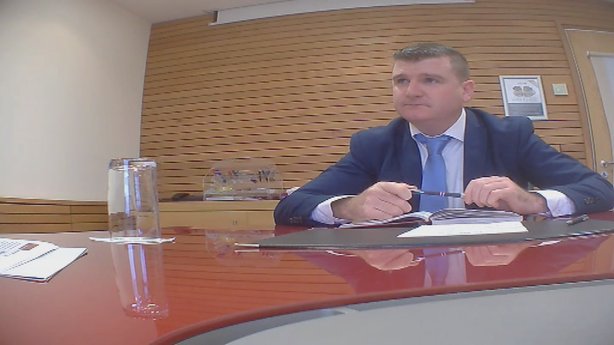The High Court has refused a county councillor John O’Donnell’s application to be allowed to be part of a legal challenge by another councillor over an ethics inquiry.
The Standards in Public Office (SiPO) Commission is investigating whether three councillors breached ethics when they were the subject of an RTE Investigates television programme.
In it, an undercover researcher posed as a representative of a foreign investment firm looking for their support for a wind farm development.
SiPO is conducting three separate inquiries against Councillors Hugh McElvaney from Monaghan, John O’Donnell from Donegal and Joe Queenan from Sligo.
Cllr McElveaney brought High Court judicial review proceedings last year claiming the inquiry into him should be stopped.
He said SiPO has failed to discharge its functions adequately under law by failing to carry out a preliminary inquiry into a complaint against him which was made by his own council’s cathaoirleach and CEO.
Among the claims of the former FG, now independent Cllr McElvaney, was that he was entrapped by the RTE researcher.
The SiPO inquiry is on hold pending the High Court case.
Cllr O’Donnell then sought to be joined as a notice party in Cllr McElvaney’s proceedings because, he claims, he would be affected by the outcome of the case and has a “vital interest” in it.
SiPO opposed Cllr O’Donnell’s application.
Now breakingnews.ie has reported that Mr Justice Michael McGrath ruled he had not satisfied the required legal test to be joined to the proceedings.
He believed Cllr O’Donnell’s application might more properly be viewed as being motivated by a desire to assist and support the claim being brought by Cllr McElvaney.
With that would perhaps be the hope that a positive outcome for Cllr Elvaney might influence the course of SiPO’s investigation of Cllr O’Donnell or the view SiPO might take in relation to it, he said.
He did not see how either a successful or unsuccessful challenge by Cllr McElvaney could be said to have a direct effect on Cllr O’Donnell’s rights and/or obligations as that term has been previously interpreted by the courts.
Tags:







